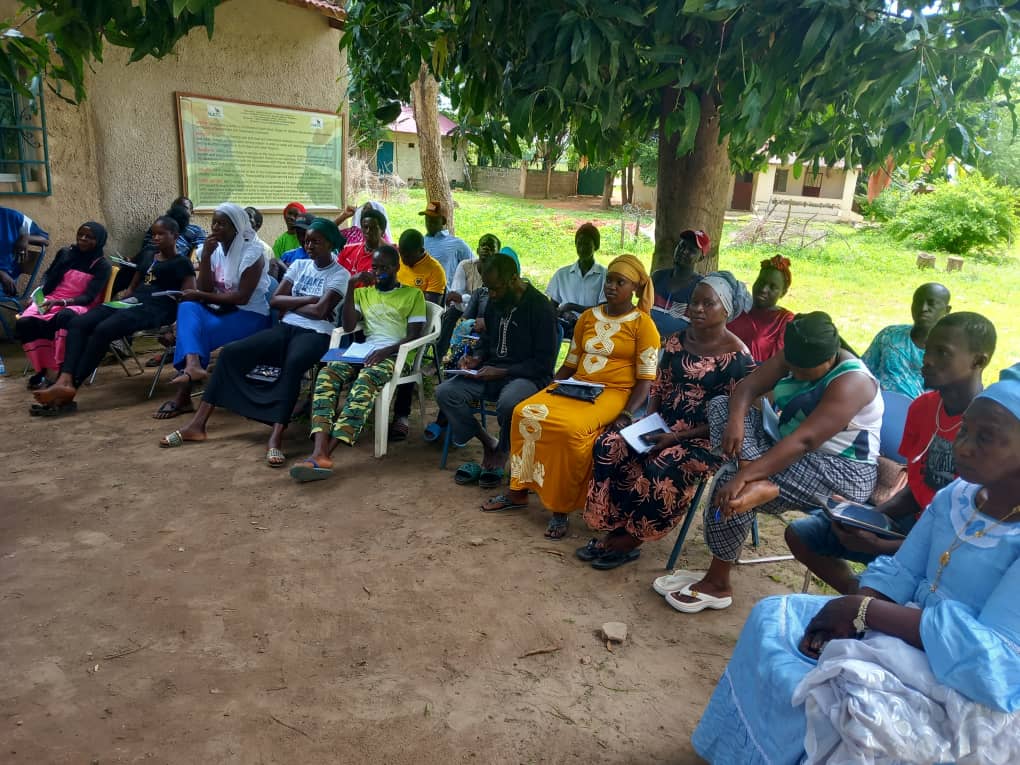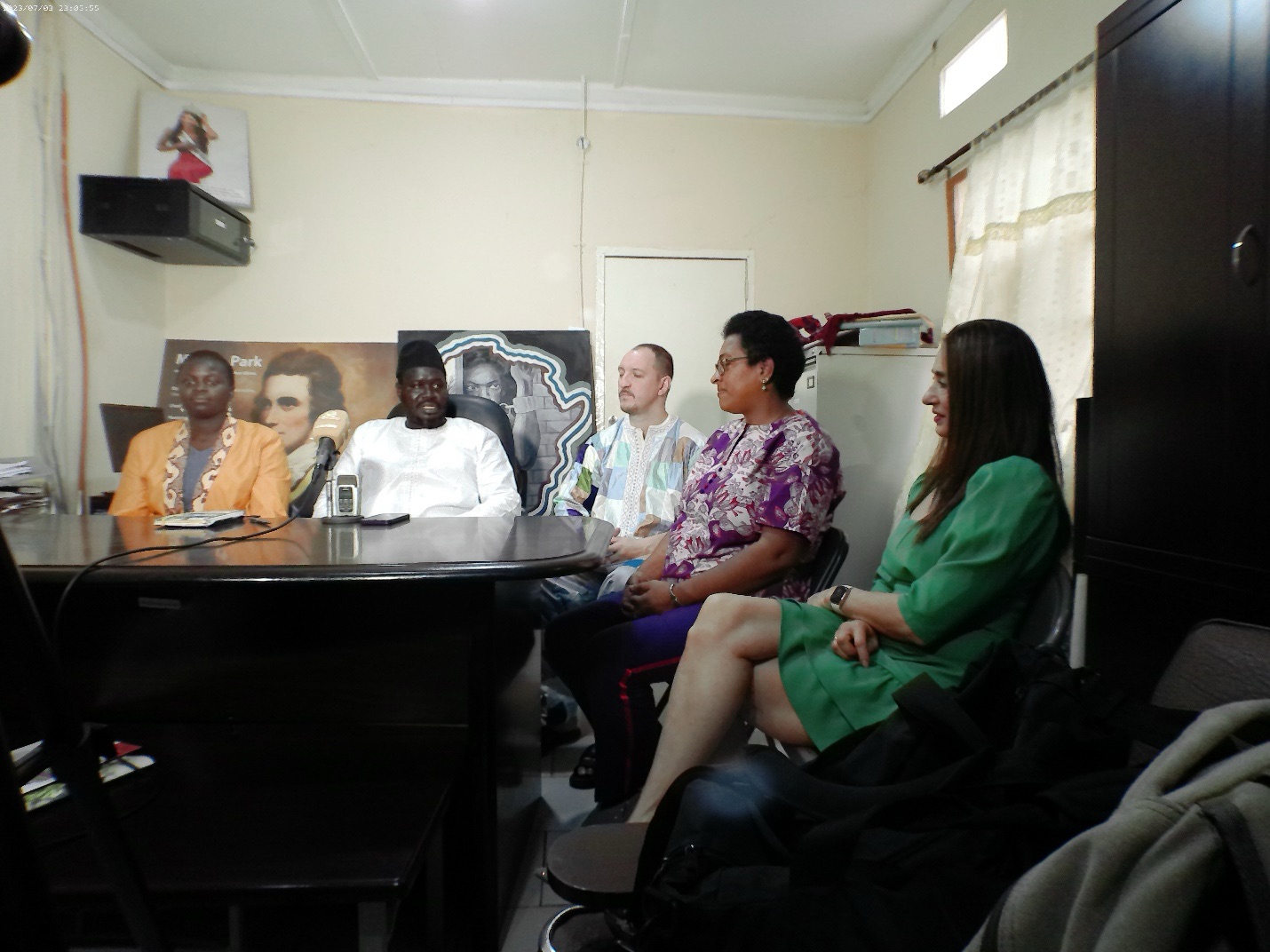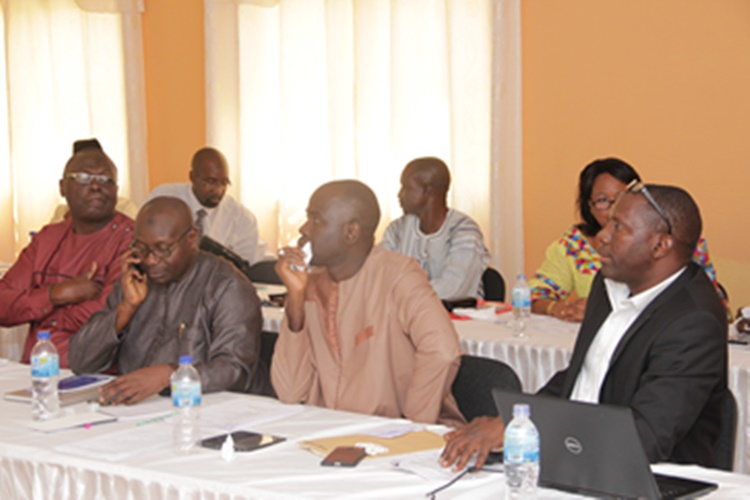By: Haruna Kuyateh
The weeklong training on aquaculture for farmers funded by the government in their quest to promote sustainable fishing galvanized to intensify aqua culture farming among the youthful population was recently wrapped up at Njawara Agricultural Training Centre in North Bank Region.
.
Aquaculture started in the Gambia way back in 1979 and since then the Ministry of Fisheries continued to attach great importance to promoting sustainable fishing through aquaculture and the adoption of best practices.
However, it was evident that some agricultural projects and NGOs provide support to communities and therefore there’s a need for stronger partnerships with the Fisheries department to provide technical design, management, and treatment of fish in the ponds. The absence of these resulted in failure in poor management and site selection of fish ponds.
Momodou Saidy Leigh, Head of Aquaculture at the Department of Fisheries expressed satisfaction with high-level participation and noted that government attaches great importance to the development of the Fisheries sector. Saidy Leigh assured of their unflinching support and collaboration with stakeholders to promote and sustain fish farming.
He hailed the then FASDEP project for supporting 37 communities with aqua culture and disclosed that plans are on the way to conduct an assessment of fish ponds and establish breeding of different fish species in SAPU in due course to enable farmers to have new breeds.
He expressed that capacity development contributes to the human resource base in promoting and popularisation and advocating for individuals and community-based organizations to take up opportunities to attain livelihood.
Saloum Jatta, Principal Fisheries Officer at the Ministry of Fisheries and Water Resources underscored the need for institutions and organizations’ strong collaboration with the line ministry in promoting technical design and management of fish ponds, treatment, and feeding to enhance sustainable fishing and employment creation.
He described the weeklong training organized by the Ministry of Fisheries for fish farmers, women, and youths on aquaculture and its importance in promoting economic growth and by extension contributing to the availability of fish at reasonable cost.
He noted that the training would contribute immensely to the transformation of promoting site selection and overall development of fish ponds. Mr. Jatta acknowledged the move taken by Higher Education Ministry to establish a training institution to enable Gambians to study different fields of fish breeding.
Baba Darboe Fisheries Officer said there is a need for more private sector involvement in aquaculture, noting the country has high-quality fish meal.
He challenged beneficiary participants to be vigilant and transfer skills learned to others.
Haddy Joof, Secretary General of Solicita Marketing Federation called on NGOs and Agricultural projects to train farmers on the management and treatment of fish in ponds to enhance sustainable fishing.
She acknowledged that the knowledge base on aquaculture is low and needs a concerted effort.
Ousainou Panneh, a fish farmer on integrated aquaculture said the visit to his pond, enable him to learn new skills on site selection and different types of fish and ponds.
He appealed to the Department of Fisheries for material support such as a water pumping machine and so on.
Isatou Jadama Nani Berreh, from the NYSS Farm, called for full operation of aquaculture at the farm and described the training as relevant, as participants learned new skills on different types of ponds and fish.
Kebba Njie, head teacher at Wassu Lower Basic School of Nianidescribed capacity development on aquaculture as crucial in promoting sustainable fishing and by extension providing an opportunity for school children to learn best practices on fish pond management and operation to enhance understanding among students.
He noted that there is a need for schools to pilot aquaculture it will contribute to promoting fishing at tender age.
Bakary Konateh, a Fish Mill Operator at Jahally used the moment to thank FAO and the Department of Fisheries for the installation of a fish mill to support fish farmers to have easy access to fish for meals at affordable prices.
Jonsaba Jawara of Kerewan SOLICITA Marketing Federation called for adequate training of beneficiaries on the management and harvesting techniques of fish. She solicited for more support and collaboration among interested groups and farmer based.




